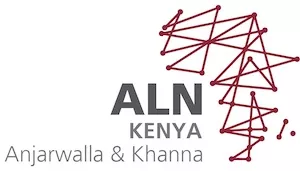Introduction
The Finance Bill, 2022 (the Bill) was published and gazetted on 8April 2022.The Bill proposes to make amendments to a raft of tax-related laws in Kenya, including the Income Tax Act (Chapter 470, Laws of Kenya), the Value Added Tax Act, 2013, the Tax Procedures Act, 2015, the Miscellaneous Fees and Levies Act, 2016 and the Excise Duty Act, 2015, among others. Additionally, the Bill proposes changes to other statutes such as the Capital Markets Act, the Insurance Act, the Unclaimed Financial Assets Act, the Statutory Instruments Act and the Evidence Act.
Generally, bills come into effect either on the date of assent by the President or on the date of operation specified within the bill, whichever is earlier. We note that in the Bill, some of the proposed amendments, particularly those relating to income tax, have an effective date of 1 January 2023, while majority of the other proposed amendments have been indicated to come into force on 1 July 2022.
The proposals in the Bill can be seen to target an increased tax base with the proposed introduction of income tax on gains received by non-residents from financial derivatives and a proposed increase in the rate of tax for Capital Gains Tax and Digital Services Tax. Further, the Bill has proposed an increase in excise duty rates for certain products. We have also seen that some amendments in the Bill are for purposes of streamlining the amendments that were introduced by the Finance Act, 2021.
It should be noted that the National Assembly has requested comments on the Finance Bill 2022 prior to enactment into law. The comments should be received by the Clerk to the National Assembly on or before 4 May 2022.
We summarise, in this legal alert, the key proposed amendments in the Bill as well as their potential impact to businesses in Kenya.
1. Amendments to The Income Tax Act, Chapter 470, Laws of Kenya (ITA)
a) Casting a wider net on income tax on financial derivatives for non-residents
Proposed Effective Date: 1 January 2023
The Bill proposes to amend the ITA to the effect of introducing income tax to gains or profits derived by non-resident persons from financial derivatives. To this end, the Bill proposes that any gains accruing to non-resident persons from a financial derivative contract with a resident person shall be subject to withholding tax at the rate of 15% of the gains earned. In this regard, the Bill has proposed to introduce a new definition of a "financial derivative" as "a financial instrument the value of which is linked to the value of another instrument underlying the transaction which is to be settled at a future date."
This proposal is aimed at increasing government revenue by targeting gains and profits made by non-resident persons trading in financial derivatives in Kenya, including hedging, futures, and options.
The Bill also proposes that the Cabinet Secretary for National Treasury and Planning (the Cabinet Secretary) shall publish regulations to govern the implementation of these provisions. We further note that the proposed amendments refer to "gains" and not "income", and it is not clear how the gains would be computed or ascertained. It is hoped that the Regulations which will be issued by the Cabinet Secretary will clarify this issue.
b) Permanent Home defined in the ITA
Proposed Effective Date: 1 July 2022
Currently, the ITA provides that one of the tests to determine whether an individual is tax resident in Kenya, is whether the individual has a "permanent home" in Kenya and was present in Kenya in that year of income under consideration. However, the term "permanent home" is not defined under the ITA. The Bill proposes to introduce a definition for the term to mean "place where an individual resides or which is available to that individual for residential purposes in Kenya, or where in the opinion of the Commissioner the individual's personal or economic interests are closest."
This definition codifies into law the meaning of a "permanent home" since taxpayers have been relying on the definitions provided under double tax treaties and case law.
Nonetheless, the proposed definition would need to be considered carefully, depending on the circumstances of each individual. For example, it would be important to understand whether an individual would be required to own a home or whether a home owned by a third party may be deemed to be a "permanent home" if it is available for exclusive use by an individual. Case law in foreign jurisdictions such as the UK (which would be persuasive to Kenyan courts) would provide guidance on interpretation of these provisions.
To read the full article click here
The content of this article is intended to provide a general guide to the subject matter. Specialist advice should be sought about your specific circumstances.





